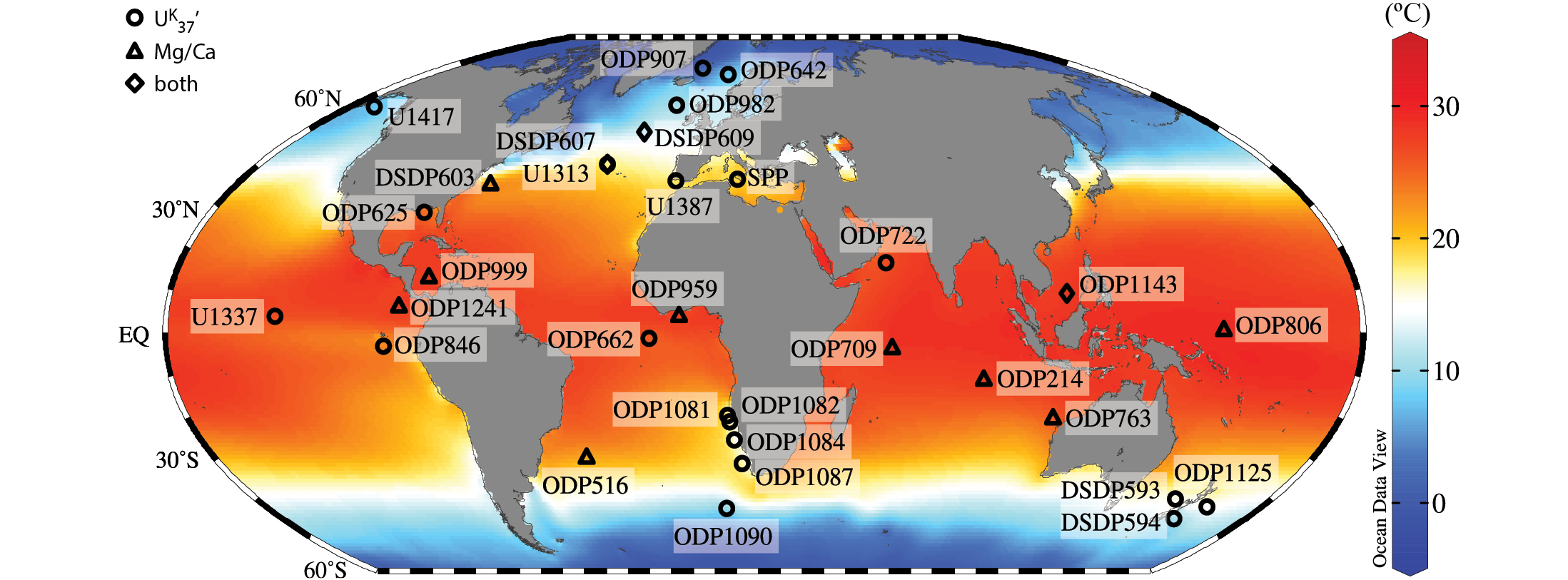- Home
- Publications
- PAGES Magazine
- The Warm Pliocene: Bridging The Geological Data and Modeling Communities
The warm Pliocene: Bridging the geological data and modeling communities
Heather Ford, A. Dolan, A. Haywood, E. McClymont, L. Pérez-Angel and L. Burton
Past Global Changes Magazine
31(1)
40
2023
PlioMioVAR workshop, Leeds, UK, and online, 24–26 August 2022
PlioMioVAR paleoclimate community and Pliocene Modeling Intercomparison Project (PlioMIP) had a hybrid meeting with in-person participants at Weetwood Hall in Leeds, UK, to present recent work and plan future PlioMioVAR working group (WG) (pastglobalchanges.org/pliomiovar) and PlioMIP3 objectives. The meeting was a European Geoscience Union Galileo Conference with additional funding from PAGES and UK-IODP. PlioMioVAR plans to build on the successful first phase of the former PAGES PlioVAR WG (pastglobalchanges.org/pliovar) by including the Miocene, and develop data-model comparison targets with the PlioMIP3 and Deep-Time Model Intercomparison Project (DeepMIP) Miocene Group. Approximately 100 working group members gathered in-person (55) and online (45) to cover a breadth of expertise in paleoceanography, corals and speleothems, paleobotany, and climate modeling.
(1) From PlioVAR to PlioMioVAR
As our initial phase of the PlioVAR database is nearing completion (McClymont et al. 2020), built as part of the former PAGES PlioVAR WG, our ongoing aim is to expand the dataset spatially and temporally. The first phase of PlioVAR focused on marine records due to the specific age-model constraints for data-model comparisons. Consequently, terrestrial archives of vegetation and precipitation were excluded from the initial work. Workshop participants identified updating the terrestrial records as a strategic aim of the next PlioMioVAR objectives. The Miocene arm of the working group met in January 2023, and has a series of planned hackathons before a hybrid meeting in June 2023 (pastglobalchanges.org/calendar/129302) to work on organizing paleoceanographic records.
(2) From PlioMIP2 to PlioMIP3
The second phase of the Pliocene Model Intercomparison Project (PlioMIP2) is reaching its conclusion, with meeting participants presenting various paleoclimate modeling studies covering topics such as the quantification of Earth’s Climate Sensitivity, patterns of atmospheric and oceanic circulation, polar amplification, climate extremes and assessments of model performance vis-à-vis marine and terrestrial proxy data (Fig. 1). In addition, draft science plans for PlioMIP3 were presented, discussed, and endorsed by participants both from the modeling and data communities. Future modeling directions discussed include the expansion of the temporal remit of PlioMIP into the Early Pliocene, enabling a comparison between Late and Early Pliocene climate states, and building one half of a scientific bridge that will eventually facilitate research collaboration between the PlioMIP and MioMIP projects.
(3) Fostering a vibrant community
We purposefully ran our workshop in hybrid mode to include as many people as possible. Although many parts of society are opening up for in-person activities, many of our colleagues do not feel comfortable traveling for medical reasons, or simply wish to travel less due to caring responsibilities, and to reduce carbon footprints. We saw providing a high-quality hybrid option as an equity issue. To enable our hybrid participation, we had a dedicated virtual poster session with individual Zoom rooms for synchronous participation. Each poster had a virtual wall on Padlet (padlet.com) for asynchronous participation and follow up comments. Each Padlet wall included the abstract and poster, and presenters were encouraged to include a brief video explaining their main points, any relevant manuscripts/preprints and/or any other information. Discussion groups were facilitated in-person or on Zoom (not mixed), while for the final reporting, both virtual and in-person groups came together. Talks were a mix of virtual and in-person, and recorded for storage online for three months post workshop. We also ran a session dedicated to discussing Equality, Diversity, and Inclusion that was facilitated by Prof. Mea Cook (Williams College, USA) and an early-career researcher event.
Acknowledgements
Funds from the European Geoscience Union Galileo Conference and UK-IOPD additionally supported this workshop.
affiliations
1Queen Mary University of London, UK
2Leeds University, UK
3Durham University, UK
4Brown University, USA
contact
Heather Ford: h.ford qmul.ac.uk (h[dot]ford[at]qmul[dot]ac[dot]uk)
qmul.ac.uk (h[dot]ford[at]qmul[dot]ac[dot]uk)
REFERENCES
Locarnini et al. (2018). World Ocean Atlas 2018, Volume 1: Temperature. NOAA Atlas NESDIS 81, 52pp

